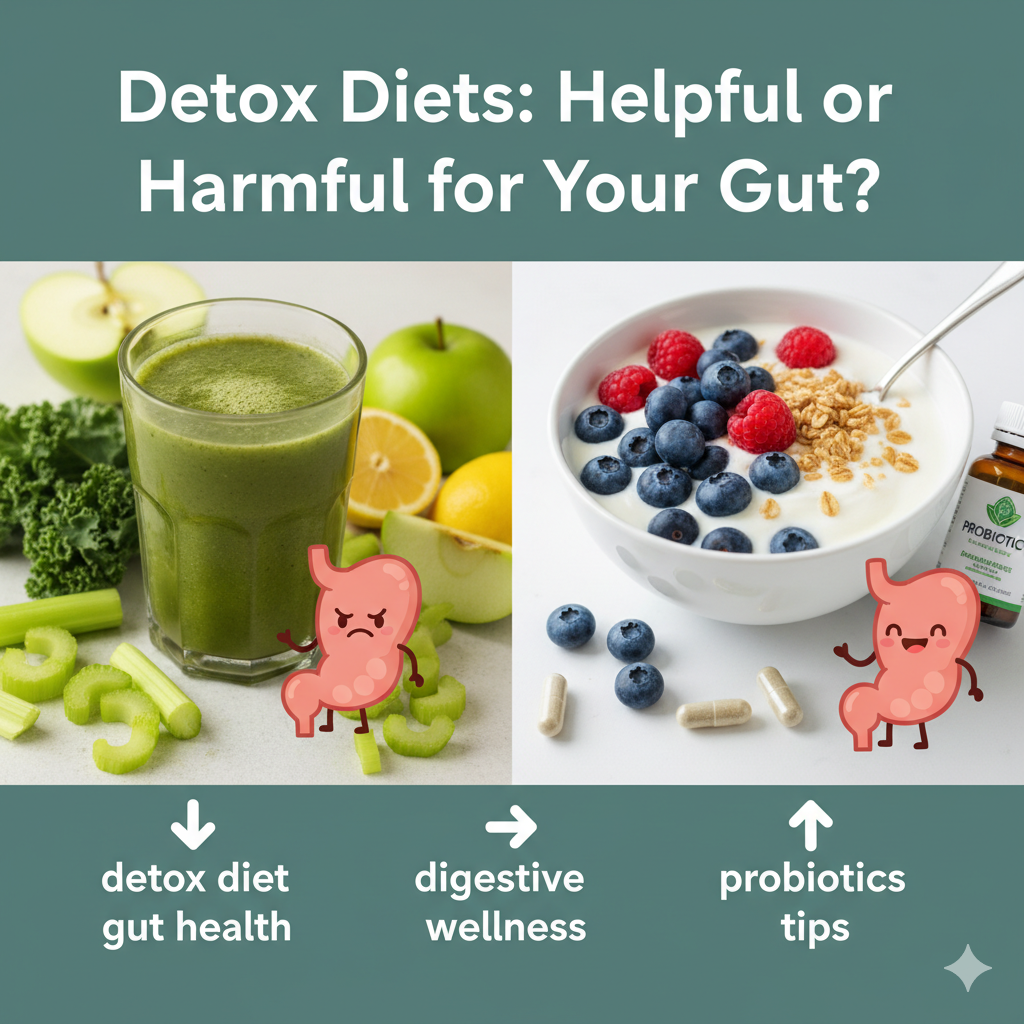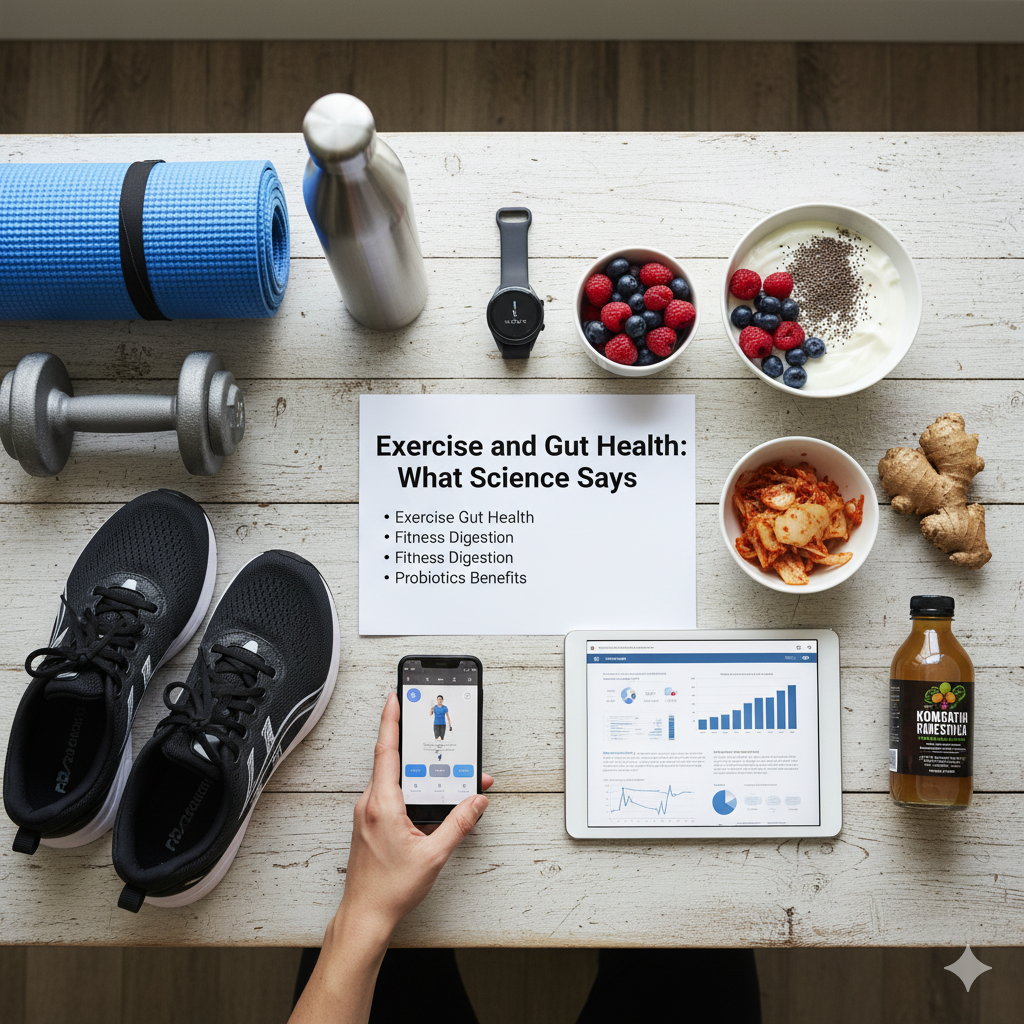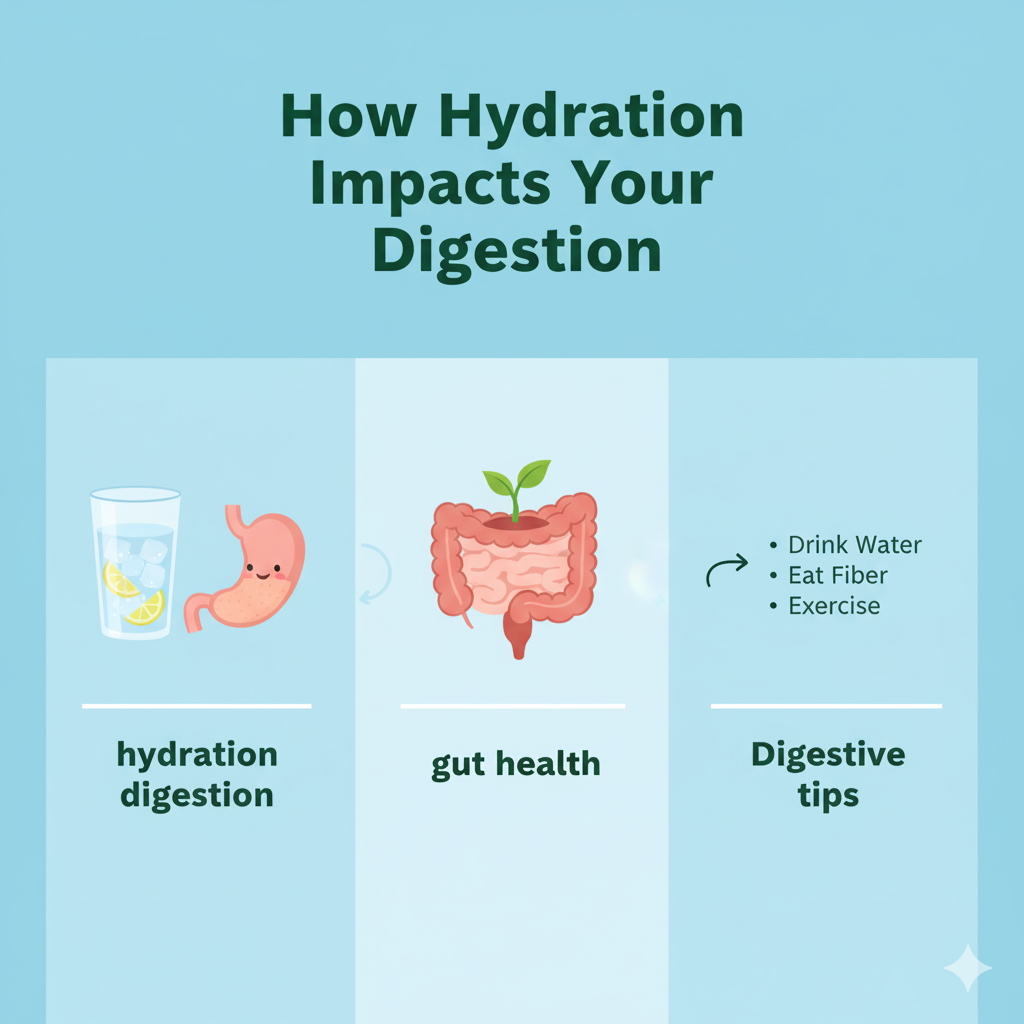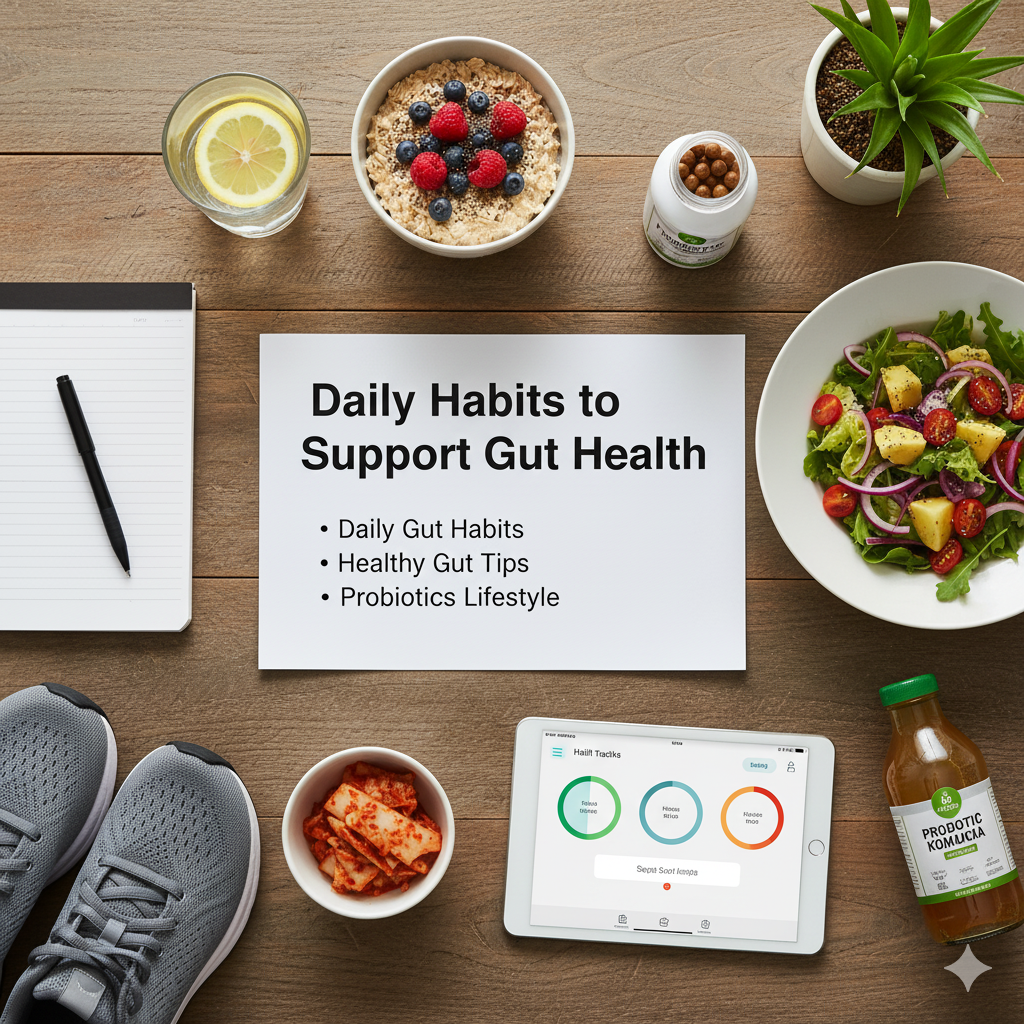Detox diets are everywhere. From juice cleanses to restrictive fasting plans, they promise to flush out toxins, reset your system, and improve digestion. But are these diets truly beneficial for your gut—or could they be doing more harm than good?
Your gut plays a vital role in digestive wellness, nutrient absorption, and immune defense. Supporting it with the right foods and habits is essential. However, extreme detox regimens may interfere with gut health rather than enhance it. Let’s explore what science says about detox diets and how they impact the microbiome.
What Are Detox Diets?
Detox diets are short-term eating patterns designed to eliminate toxins from the body. They usually involve:
- Juice Cleanses: Consuming only fruit and vegetable juices.
- Fasting: Skipping meals for extended periods.
- Elimination Diets: Cutting out entire food groups.
- Supplement-Based Detoxes: Using herbal teas, powders, or pills marketed as detoxifiers.
The idea is that these practices give the digestive system a “break” and allow the body to remove harmful substances more effectively.
The Science Behind Detox
Here’s the truth: your body already has a highly efficient detox system—the liver, kidneys, lungs, and skin. These organs filter toxins, break them down, and eliminate them naturally.
While eating a nutrient-rich diet supports this process, most commercial detox diets don’t actually “cleanse” the body in a meaningful way. Instead, they often restrict calories, cut out important nutrients, and may upset the balance of the gut microbiome.
How Detox Diets Can Affect Gut Health
✅ Potential Benefits
Some gentle detox-inspired habits may positively influence gut health:
- Increased fruit and vegetable intake: Rich in fiber and antioxidants.
- Reduced processed foods: Less sugar, additives, and unhealthy fats.
- Hydration focus: Drinking more water supports digestion.
❌ Potential Harms
However, restrictive or extreme detox diets often backfire:
- Loss of Fiber
Many juice cleanses remove fiber from fruits and vegetables. Without fiber, beneficial gut bacteria starve, leading to reduced microbiome diversity. - Nutrient Deficiencies
Cutting out proteins, healthy fats, and whole grains can deprive the body of essential vitamins and minerals needed for gut lining repair. - Digestive Disruption
Liquid-only diets may cause diarrhea, while sudden elimination of entire food groups may lead to constipation or bloating. - Microbiome Imbalance
The gut thrives on dietary variety. Restrictive detox plans reduce this variety, potentially harming the balance of good bacteria. - Stress on the Body
Extreme fasting raises cortisol levels (the stress hormone), which negatively impacts gut function.
What Your Gut Really Needs
Instead of restrictive detox diets, your gut thrives on consistency and balance. The following practices promote digestive wellness without harmful side effects:
1. Eat High-Fiber Foods
Fiber feeds healthy bacteria and keeps digestion moving. Include:
- Whole grains (oats, quinoa, brown rice).
- Fruits (apples, pears, berries).
- Vegetables (broccoli, carrots, spinach).
- Legumes (lentils, chickpeas).
2. Incorporate Probiotics
Probiotics restore healthy bacteria, which may be disrupted by poor diet or stress. Options include:
- Yogurt, kefir, sauerkraut, kimchi, miso.
- Probiotic supplements (look for multiple strains).
3. Fuel Probiotics with Prebiotics
Prebiotics are fibers that act as food for probiotics. Sources include garlic, onions, leeks, asparagus, bananas, and flaxseeds.
4. Stay Hydrated
Water helps flush waste naturally and supports nutrient absorption. Aim for 2–3 liters daily.
5. Limit Processed Foods
Instead of detoxing after eating junk food, focus on long-term balance by minimizing ultra-processed snacks, sugary drinks, and fried foods.
6. Practice Mindful Eating
Chew slowly, savor your meals, and avoid eating in stressful or rushed environments. This supports proper digestion.
Probiotics Tips During a “Gentle Detox”
If you’re drawn to the idea of a detox but want to protect your gut, here are safe probiotic-friendly adjustments:
- Add a probiotic-rich food with at least one meal daily.
- Pair probiotics with fiber-rich prebiotics to maximize benefits.
- Avoid cleanses that completely eliminate solid foods.
- Consider a probiotic supplement during and after dietary changes.
This approach helps maintain microbiome stability, even if you make temporary dietary adjustments.
A Safer Alternative: Gut-Friendly Reset
Instead of an extreme detox, try a 3-day gut-friendly reset:
Day 1–3 Meal Plan
- Breakfast: Overnight oats with chia seeds, berries, and kefir.
- Lunch: Quinoa salad with grilled vegetables, olive oil, and sauerkraut.
- Snack: Apple with almond butter.
- Dinner: Baked salmon with steamed broccoli and brown rice.
- Beverages: Herbal teas (ginger, peppermint, chamomile) + water.
This plan supports natural detoxification through fiber, antioxidants, hydration, and probiotics—without depriving the gut.
The Bottom Line
Detox diets may sound appealing, but they are often harmful to gut health if followed strictly or long-term. While short-term habits like drinking more water, eating fresh produce, and cutting out processed foods can be helpful, extreme detox cleanses deprive the body of fiber, nutrients, and microbial diversity.
Your gut doesn’t need a “detox.” What it needs is consistent nourishment: fiber, probiotics, hydration, and a balanced lifestyle. By focusing on sustainable habits, you’ll support your digestive system naturally—without the risks that come with extreme cleansing plans.





“This was a very insightful read! I appreciated how you explained both the potential benefits and the risks of detox diets. It’s easy to get caught up in trendy cleanses, but your article reminded me that extreme diets can actually harm gut health rather than help it. I liked the balanced approach and the reminder to focus on sustainable, long-term habits instead.”